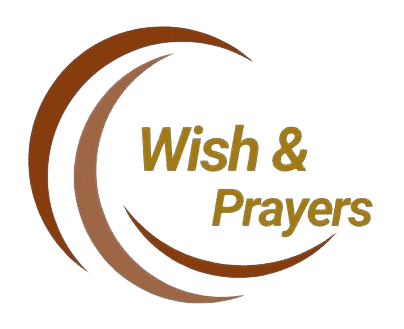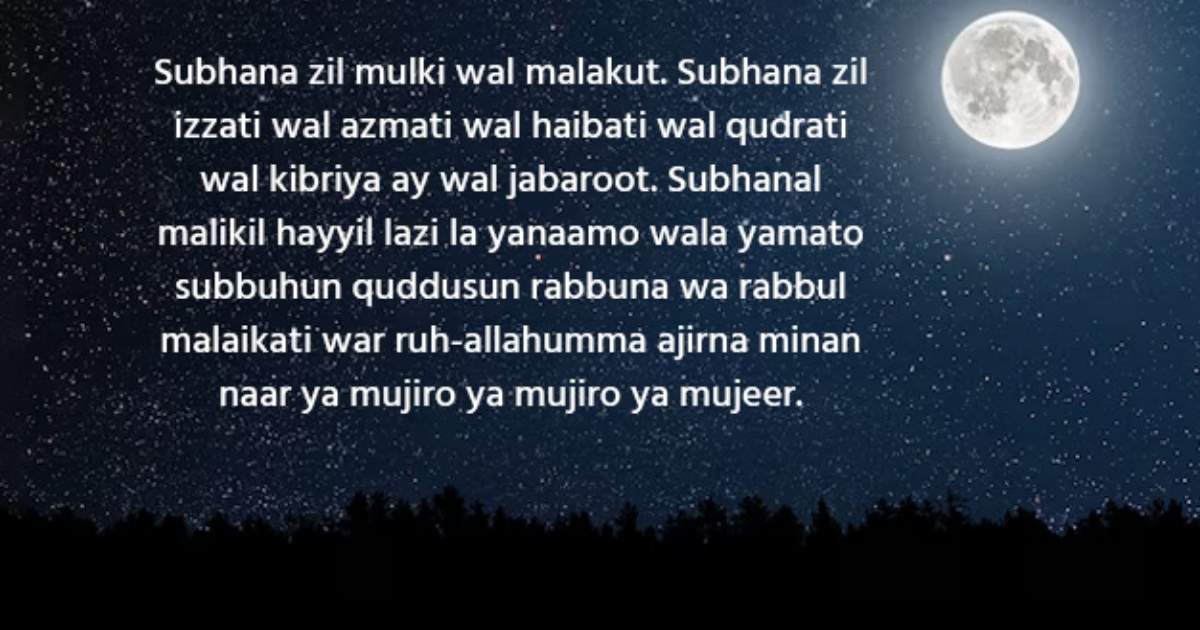I always used to feel a little lost during Taraweeh in Ramadan. Everyone around me seemed to know the taraweeh dua by heart, reciting it with such emotion, while I stood there unsure, just mumbling along. I’d Google things like “taraweeh dua in English” or “dua after taraweeh,” hoping to find something simple and clear, but it was always either too long, too confusing, or just not what I needed at the moment.
If you’ve ever felt the same, this blog is here to help. I’ll walk you through the taraweeh prayer dua, explain what it means and even share the taraweeh dua in both Arabic and English so you can follow along confidently. Whether you’re new to Taraweeh or just want a deeper connection during your nightly prayers, you’ll find everything you need right here.
What Is the Taraweeh Dua in English?

During Ramadan, Muslims perform extra nightly prayers called Taraweeh. After every four rak‘ahs, many mosques recite a special Taraweeh. It’s a spiritual supplication asking Allah for mercy, forgiveness and protection. Though not required, it has become a common part of the Ramadan prayer tradition in many communities around the world.
In English, the Taraweeh is a heartfelt prayer that glorifies Allah and humbly asks for His forgiveness and protection from Hellfire. It reminds worshippers of Allah’s mercy and the hope of salvation. Translating it into English helps non-Arabic speakers feel more connected and understand what they are asking from Allah during these blessed nights.
The Taraweeh Dua in English – Full Translation and Meaning
The Taraweeh is short but spiritually rich. It glorifies Allah and asks for protection and mercy. Though simple, its phrases express the deep emotions of Ramadan worship and the believer’s hope in Allah’s forgiveness.
- Glory to the One who owns all things, both seen and unseen, near and far.
- Glory to the One full of honor, power, strength and unmatched greatness over all.
- Glory to the Living One who never sleeps, never dies and never forgets.
- Perfect is our Lord, Master of the angels and every soul He created.
- O Allah, protect us from the burning fire of Hell and all its punishments.
- You are the One who grants refuge , shelter us with Your mercy, O Allah.
- We turn to You alone for safety , no one else can give true protection.
- You hear every voice, every whisper , please hear this humble call from our hearts.
- You forgive endlessly , please include us among those You forgive this Ramadan.
- You are full of mercy and kindness , we rely only on You for hope.
Is This Dua from the Sunnah? What Scholars Say
The Taraweeh often heard in Ramadan is not directly from the Sunnah of the Prophet ﷺ. The commonly recited Taraweeh isn’t directly from the Sunnah. It isn’t recorded in any authentic hadith as a supplication the Prophet Muhammad ﷺ used during Taraweeh prayers. That means it’s not a confirmed practice from his time, though it has become a tradition in many communities today.
Still, many scholars say it’s acceptable to recite this dua. Islam encourages turning to Allah with sincere words, whether they’re from the Qur’an, Hadith, or personal prayers. As long as the phrases don’t go against Islamic teachings, they can be part of worship,especially in times like Ramadan when hearts feel closer to Allah.
This dua is often seen as a spiritual addition, not a requirement. It helps remind worshippers of Allah’s mercy, power and forgiveness. That’s why scholars generally view it as a good practice, even if not from the Sunnah, because it uplifts people and strengthens their connection to Allah during blessed Ramadan nights.
Read more : Islamic Quotes on Friendship
When and How It’s Recited in Taraweeh

The Taraweeh is often recited after every four rak‘ahs during Ramadan’s night prayer. It’s usually said during short breaks between prayer sets. The imam may say it aloud, or someone else might recite it while others listen quietly or follow along in their hearts, reflecting on its meaning.
Although not part of the official prayer, many communities include this dua as a spiritual pause. It’s a moment to breathe, remember Allah and seek His mercy. While some mosques may skip it, others find it a powerful way to connect with the purpose of Ramadan and refresh the soul between rak‘ahs.
Timing of the Taraweeh Dua During the Prayer
The Taraweeh is usually recited during short breaks between every four rak‘ahs. It’s not part of the actual prayer but is often added for reflection and spiritual pause during the longer night prayer routine in Ramadan.
Some imams say it aloud while others read it quietly. The timing isn’t fixed in Islamic law, so each community may follow its own tradition. What matters most is that the dua is made with sincerity and heart.
The Manner of Reciting the Dua
The Taraweeh is usually recited in a calm and humble voice. It can be read aloud by the imam or quietly by each person. The goal is to stay focused, sincere and connected to Allah while saying the words.
There’s no strict rule for how it must be read. Some people recite it slowly with reflection, while others say it more quickly. What matters most is understanding the meaning and feeling the emotion behind the words.
Variations in Practice Across Cultures
Different cultures have different ways of reciting the Taraweeh In some countries, it’s a long group recitation. In others, it’s short or even skipped. Each community follows what they’ve learned and grown up with during Ramadan nights.
In many South Asian mosques, the dua is often recited after every four rak‘ahs. In Arab countries, it may be less common or replaced with personal supplications. Neither way is wrong,it’s all about what brings people closer to Allah.
Some people read it in Arabic, while others prefer their native language. English versions are common in diverse communities. The goal is sincerity, not perfection. These small cultural differences show how Islam beautifully fits many languages and traditions while keeping the heart of worship the same.
The Authentic Qunoot Dua of Witr
The Qunoot Dua is a beautiful and authentic supplication taught by the Prophet Muhammad ﷺ. It’s usually recited in the final rak‘ah of Witr prayer, especially during Ramadan. This dua asks Allah for guidance, protection, blessings and forgiveness. It’s deeply meaningful and full of love, hope and trust in Allah.
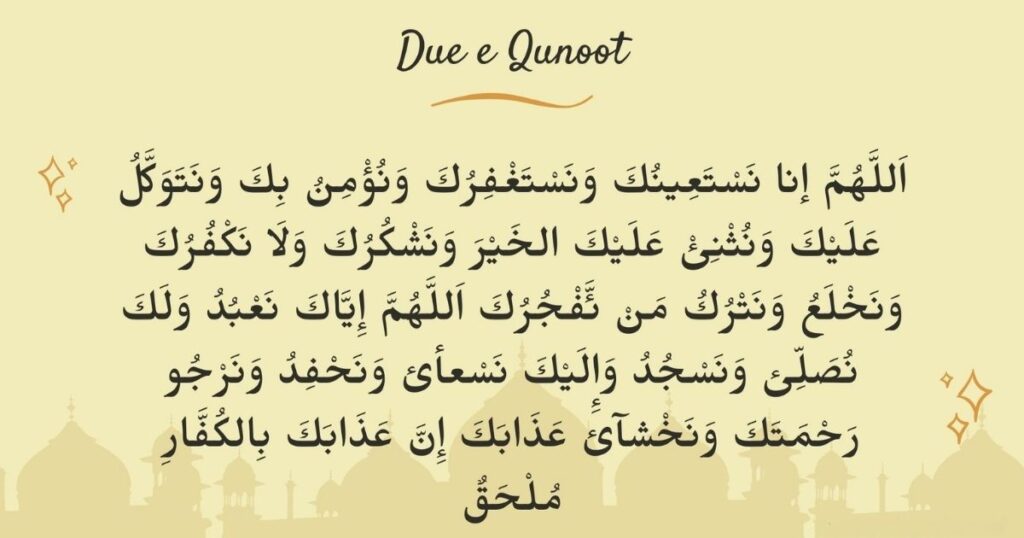
Translation of the Qunoot Dua (from the Sunnah):
- O Allah, guide us to the right path, just like You guide the righteous.
- Grant us health, safety and peace in our lives.
- Care for us as You care for Your chosen believers.
- Bless everything You’ve given us, big or small.
- Keep us safe from harm and from anything bad that could happen.
- You are in control , no one can change what You decide.
- Whoever You support will never be disgraced or brought down.
- And the one You leave will never be honored or lifted high.
- You are always fair and just in everything You do.
- All blessings come from You alone , we thank You deeply.
- You are the Most High, far above any weakness or flaw.
- We trust Your plan, even when we don’t understand it.
- Please forgive our mistakes and accept our prayers.
- Help us become better people and follow Your way with sincerity.
- O our Lord, You are Blessed and Majestic , all praise belongs to You.
This supplication is a practice from the Sunnah. It is commonly read during the Witr prayer, typically in the final unit (rak‘ah), either before or after bowing, based on the particular Islamic school of thought followed.
Why Muslims Still Hold on to the Taraweeh Dua
Many Muslims continue to recite the Taraweeh even though it’s not from the Sunnah. That’s because it brings a deep emotional feeling during Ramadan nights. The words remind people of Allah’s mercy, power and the hope of being forgiven.
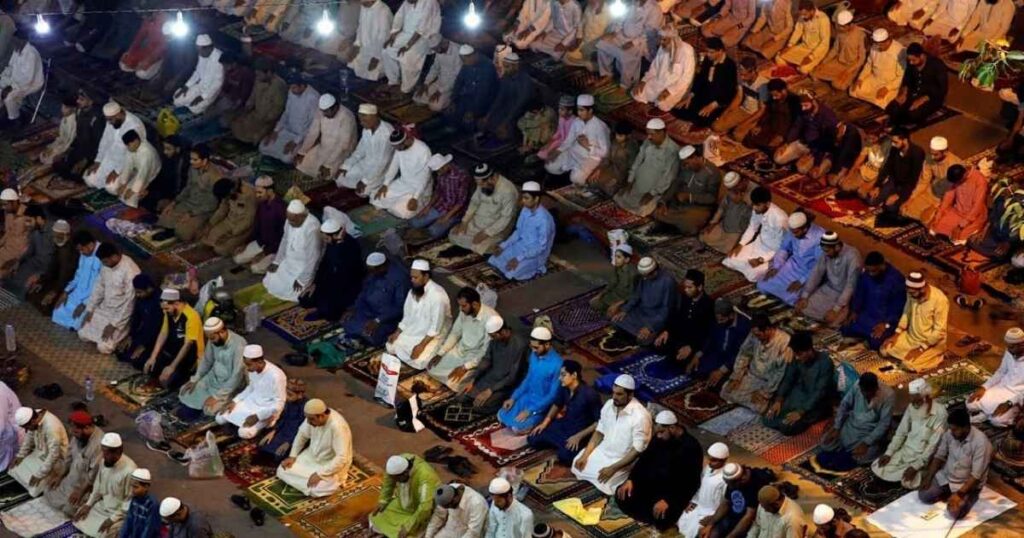
It’s not just about tradition , it’s about connection. This short dua helps people pause and reflect between prayers. In busy lives, it offers a calm, spiritual moment that brings the heart closer to Allah.
For many, the Taraweeh feels personal. The words are simple but meaningful. It gives them a chance to make a heartfelt plea, especially when they don’t know many Arabic prayers. That emotional bond is why the dua is still loved and recited today.
Spiritual Significance of the Dua
The Taraweeh brings a deep sense of peace and closeness to Allah. Its words remind us of His mercy, power and forgiveness. Saying this dua helps us feel connected during Ramadan, especially when our hearts are full of hope and repentance.
It’s more than just words,it’s a moment to pause and speak to Allah from the heart. Many people feel emotional during this dua because it reflects what they truly want: mercy, protection and guidance. That’s what makes it so spiritually special.
A Link to Tradition and Community
Reciting the Taraweeh is a way Muslims feel connected to their Ramadan traditions. For many, it brings back memories of praying in the masjid with family, friends and neighbors. It’s a moment that feels both spiritual and familiar.
Even if it’s not part of the Sunnah, this dua has become a shared experience in many communities. It brings hearts together, reminding people they’re part of something bigger,a global family of believers turning to Allah during blessed nights.
Emotional Comfort and Personal Connection
Taraweeh brings calmness to the heart. Its simple, powerful words help Muslims feel peaceful and spiritually safe. During the quiet nights of Ramadan, it becomes a moment to pause and breathe. This short prayer often says exactly what many are feeling inside, even when words are hard to find.
Sometimes, people don’t know how to express their feelings in dua. The Taraweeh helps fill that gap. Its tone is soft and emotional, making it easy to connect with. After a long day of fasting, this prayer offers comfort, reflection and a feeling of being heard by Allah.
Everyone recites it a little differently. Some whisper slowly, others say it with tears. Many pause after certain lines that hit home. Over time, it becomes more than a prayer,it becomes personal. It’s a private, emotional talk with Allah that brings healing, strength and a deeper connection during Ramadan.
Read more : Quotes Eid-ul-Fitr
Related Verses and Duas from the Qur’an
The Taraweeh isn’t directly from the Qur’an, but its meanings are found throughout Allah’s words. It speaks of guidance, mercy, protection from Hell and the greatness of Allah , all of which appear in many Quranic duas and verses. These show how deeply connected the dua’s themes are to the Qur’an.
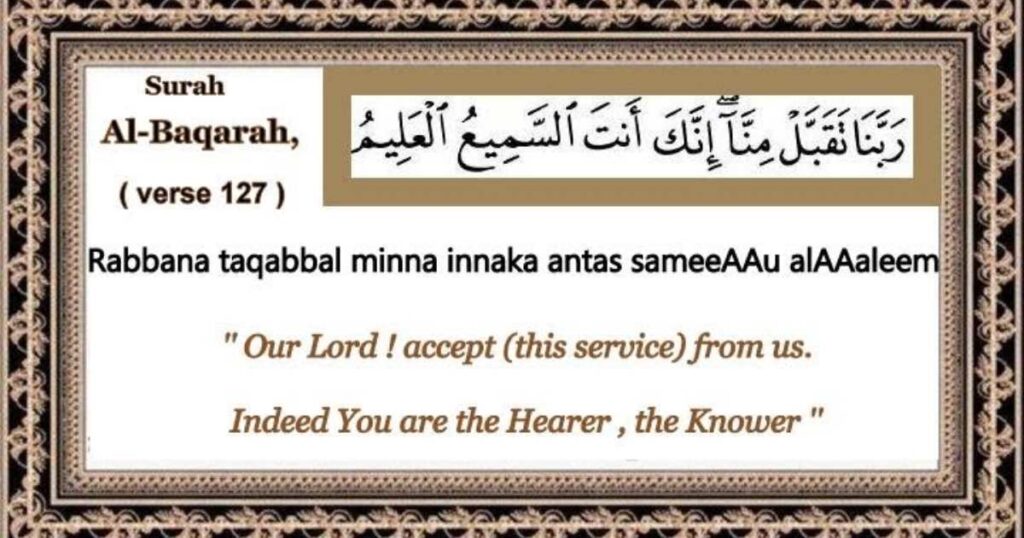
- “Our Lord, guide us and make us strong in faith.” (Surah Al-Baqarah, 2:286)
- “Do not burden us beyond what we can bear.” (Surah Al-Baqarah, 2:286)
- “Forgive us, have mercy on us and help us against wrongdoers.” (Surah Al-Baqarah, 2:286)
- “Protect us from the Fire, for Your punishment is severe.” (Surah Al-Imran, 3:191)
- “O Allah, You own everything , You give power to whom You will.” (Surah Al-Imran, 3:26)
- “Don’t let our hearts go astray after You’ve guided us.” (Surah Al-Imran, 3:8)
- “You are truly Forgiving and Merciful.” (Surah Al-A’raf, 7:151)
- “Forgive us and our brothers who came before us in faith.” (Surah Al-Hashr, 59:10)
- “Our Lord, accept this from us. You are the All-Hearing, All-Knowing.” (Surah Al-Baqarah, 2:127)
- “Give us good in this world and the next and save us from Hell.” (Surah Al-Baqarah, 2:201)
You may like also : wish prayers
FAQ’s
What is the dua after 4 rakat Taraweeh?
The Taraweeh Dua after 4 rakats is a heartfelt supplication asking Allah for mercy, protection and forgiveness during Ramadan night prayers. It varies by culture and imam.
Why pray Taraweeh?
Muslims pray Taraweeh to earn extra rewards in Ramadan, reflect on the Qur’an and feel spiritually close to Allah. The Taraweeh Dua adds meaning to the prayer.
Which dua is recited in Taraweeh?
The Taraweeh Dua is often a non-Sunnah supplication said between rakats, asking for Allah’s mercy and refuge. It may include praise and seeking forgiveness.
What to pray after Taraweeh?
After Taraweeh, Muslims often make personal duas or recite the Taraweeh Dua again. Witr prayer is also performed, ending the night in spiritual reflection.
Can we pray Taraweeh after 12 am?
Yes, you can pray Taraweeh after midnight. The Taraweeh Dua can still be recited during late-night prayer. Islam allows flexibility in voluntary night prayers like Taraweeh.
Conclusion
The Taraweeh Dua is a special part of Ramadan nights. It’s not long or difficult, but it brings peace to the heart. Many Muslims wait for this moment after each set of rak‘ahs. Whether it’s the dua after Taraweeh or between prayers, the words feel personal and full of meaning. Some say the Taraweeh prayer dua softly, while others follow the imam. No matter how it’s done, the heart matters most.
For those who don’t speak Arabic, the Taraweeh Dua in English helps make a strong connection. Even a short taraweeh said with sincerity can feel powerful. These moments of prayer help us reflect, ask for forgiveness and seek Allah’s mercy. Whether you’re in a masjid or at home, the Taraweeh Dua brings comfort. It’s a beautiful way to end each night of worship in Ramadan.

With over five years of experience in crafting meaningful content, I’m the creator of Wish Prayers, a blog dedicated to heartfelt wishes, messages and greetings for every occasion. My mission is to help readers express their emotions with the perfect words, no matter the moment.
